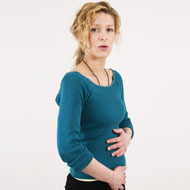- General Articles
- General Pregnancy Questions
- Baby Growth
- Pregnancy Diet
- Miscarriage
- During Pregnancy
- Twin Pregnancy
- Toddler Meals
- Home Remedies During Pregnancy
- Breastfeeding
- Pregnancy Week By Week
- Pregnancy Tests
- Ectopic Pregnancy
- Pregnancy Signs and Symptoms
- Pregnancy Stages
- Potty Training
- Fetal Development
- Preschooler
- Postpartum Depression
- Toddler Illness
- Baby Care
- After Pregnancy
- Molar Pregnancy
- During Delivery
- Beauty and Style
- Pregnancy Clothing
- Preconception
- Fertility
Birth Defects During Pregnancy
Every pregnancy is different and consists of unique moments of happiness and anxieties. However, for some individuals, this phase is filled with uncertainties and worries that revolve around birth defects during pregnancy. This is one of the major causes of concern for parents who are expecting a child. Birth defects could range from flaws in the formation of a certain organ to the improper functioning of an organ. Heart defects and defects affecting the central nervous system are the most common among these. Cleft palate, clubfoot, cerebral palsy and spina bifida are common abnormalities.
Genetic abnormalities could cause conditions such as Down’s syndrome. These anomalies could hamper the development of the child or cause physical disabilities, making even mundane tasks difficult for the child at a later stage. In some cases, children may be born with a missing limb while others could be born blind, deaf or mute.
Birth defects are caused by nutritional deficiencies, environmental conditions, chromosomal anomalies or genetic factors. For preventing birth defects during pregnancy, caused by nutritional deficiencies, it is essential that the expectant mother enjoy a well-balanced diet on a daily basis. Folic acid is extremely essential for the prevention of deformities, and folic acid supplements must be taken regularly. Iron, calcium and omega 3 fatty acids are also essential for the proper development of the baby in addition to a host of other nutrients. Avoiding exposure to various chemicals and cigarette smoke also helps in minimising birth defects. Alcohol and drug use must be avoided completely. Little can be done to prevent genetic or chromosomal defects. In some cases, birth defects could occur due to no apparent reason.
The first sign of birth defects during pregnancy is a smaller than normal uterus which signals that the baby is not growing properly. Other symptoms of birth defects during pregnancy include bleeding or spotting during pregnancy. This happens because the body tries to terminate the pregnancy naturally. In most cases, such pregnancies end in miscarriage because of the body’s natural mechanism. Testing for birth defects during pregnancy is recommended by most doctors when they have a doubt regarding birth defects. Intensive ultrasounds, maternal blood serum tests, amniocentesis and fetal blood tests are conducted so as to check if there is a chance of any birth defect. Knowing about a deformity before the arrival of the child helps in getting the parents ready to face the situation in a more prepared manner, once the child is born.
Read more articles from the During Pregnancy Category.



 7 Must-Haves Before Your Baby Arrives
7 Must-Haves Before Your Baby Arrives Bonding Games for Babies
Bonding Games for Babies DIY Baby Bath Towel Apron
DIY Baby Bath Towel Apron Common Late Pregnancy Fears
Common Late Pregnancy Fears